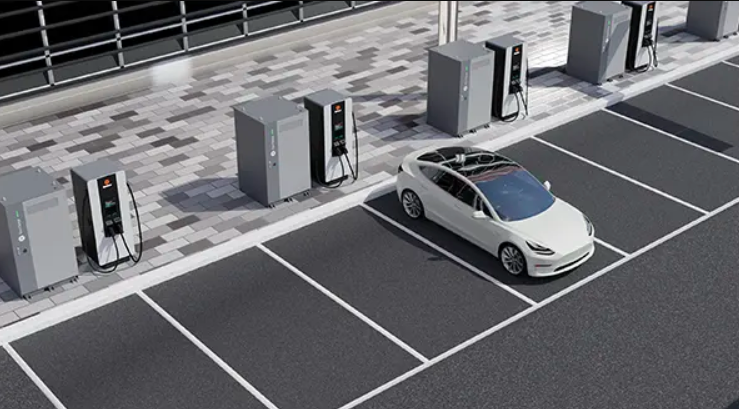
Electric vehicle charger manufacturers: driving the future of clean transportation
the rise of electric vehicles (evs) is transforming the global automotive landscape. as governments, companies, and consumers push toward greener alternatives, the demand for reliable and efficient charging infrastructure grows rapidly. at the heart of this transformation lie electric vehicle charger manufacturers, who design, develop, and produce the devices that power evs and enable a sustainable future.
this article delves into the vital role of electric vehicle charger manufacturers, their technological innovations, industry challenges, and their impact on the environment and economy.
the evolving role of electric vehicle charger manufacturers
the rapid increase in electric vehicle adoption has put immense pressure on the charging infrastructure. electric vehicle charger manufacturers are tasked with creating solutions that meet diverse needs — from residential home chargers to high-powered commercial fast chargers.
beyond simply producing hardware, these manufacturers are increasingly focusing on integrating smart technologies that enable seamless user experiences, interoperability, and efficient energy management. their innovations help reduce “range anxiety” and encourage more drivers to switch to electric vehicles.
types of chargers produced by electric vehicle charger manufacturers
electric vehicle charger manufacturers offer a wide array of products tailored for different charging needs:
- level 1 chargers: these chargers connect to a standard household outlet and provide slow, overnight charging. while affordable and easy to install, level 1 chargers are suitable mainly for users with short daily commutes.
- level 2 chargers: operating at higher voltage levels (typically 240v), level 2 chargers provide faster charging times. commonly found in homes, workplaces, and public parking, they strike a balance between speed and cost.
- dc fast chargers: delivering direct current at high power, these chargers enable rapid charging, sometimes replenishing 80% of a vehicle’s battery in under 30 minutes. electric vehicle charger manufacturers specializing in dc fast chargers often invest in cooling systems and advanced safety features to handle intense operation.
- wireless charging systems: a newer innovation, these systems use electromagnetic fields to charge vehicles without cables. though still in development, wireless chargers promise enhanced convenience.
See also: Top 3 Singapore Travel Attractions Nobody Should Miss
technological advancements shaping the industry
to stay competitive and meet market demands, electric vehicle charger manufacturers are embracing several cutting-edge technologies:
- smart and connected chargers: incorporating wi-fi or cellular connectivity, chargers can communicate with vehicles, utilities, and cloud platforms. this connectivity enables features such as remote monitoring, scheduling, energy optimization, and dynamic pricing.
- multi-standard compatibility: supporting different connector types and communication protocols (such as ccs, chademo, and gb/t) ensures that chargers are usable by a wide variety of ev models.
- modular and scalable designs: modular chargers allow for easier upgrades and maintenance, helping owners adapt to future technological changes or increased capacity needs.
- energy integration: some manufacturers are developing chargers capable of integrating with renewable energy sources like solar panels or participating in vehicle-to-grid (v2g) programs, where parked evs can feed energy back into the grid.
challenges faced by electric vehicle charger manufacturers
despite exciting prospects, electric vehicle charger manufacturers navigate a series of challenges:
- infrastructure readiness: deploying fast chargers requires strong electrical infrastructure, which is lacking in many locations. upgrading the grid is often necessary but costly.
- high development costs: the design and certification of safe, reliable chargers require significant investments, especially for advanced technologies like dc fast charging.
- regulatory compliance: manufacturers must ensure their products meet diverse international standards, which can slow down deployment in some markets.
- market fragmentation: with multiple standards and charging protocols, manufacturers must balance compatibility with cost efficiency.
- user experience: ensuring that chargers are intuitive and reliable is essential to building consumer trust and increasing ev adoption.
how to choose the right electric vehicle charger manufacturer
for businesses, municipalities, or property owners looking to invest in charging solutions, selecting the appropriate electric vehicle charger manufacturers is critical. consider these factors:
- product reliability and certifications: verify that chargers meet safety and performance standards relevant to your region.
- technical support and service: a responsive support network ensures quick issue resolution and system uptime.
- customization and scalability: look for manufacturers offering products that can grow with your needs and integrate with smart energy management.
- pricing and financing: transparent pricing models and flexible payment plans can facilitate adoption.
- compatibility: ensure chargers support a broad range of ev models and charging standards.
leading players in the electric vehicle charger manufacturing industry
the electric vehicle charger manufacturers landscape includes both established corporations and innovative startups:
- tesla: famous for its supercharger network and home charging solutions, tesla remains a major force in the market.
- chargepoint: a pioneer in networked charging stations, offering extensive public and commercial chargers.
- abb: a leader in dc fast charging, known for industrial-grade and reliable equipment.
- blink charging: focuses on residential and commercial charging with smart network capabilities.
- siemens: offers scalable and integrated charging systems, emphasizing grid compatibility.
these companies, among others, are pushing the industry forward through research, development, and global deployment.
future outlook for electric vehicle charger manufacturers
- as the global push for electrification intensifies electric vehicle charging station manufacturers are poised for substantial growth:
- wider ev adoption will drive demand for chargers across homes, workplaces, and public spaces.
- technology innovation will bring faster, more efficient, and user-friendly chargers.
conclusion
electric vehicle charger manufacturers are essential to the ongoing transformation of transportation. by developing advanced charging solutions that are efficient, smart, and accessible, they address key barriers to electric vehicle adoption.
their innovations not only help reduce environmental impact but also stimulate economic growth and technological progress. as electric vehicles become the norm, the role of these manufacturers will only grow more critical.
investing in quality charging infrastructure from trusted electric vehicle charger manufacturers is a strategic step toward a cleaner, smarter, and more sustainable future.




